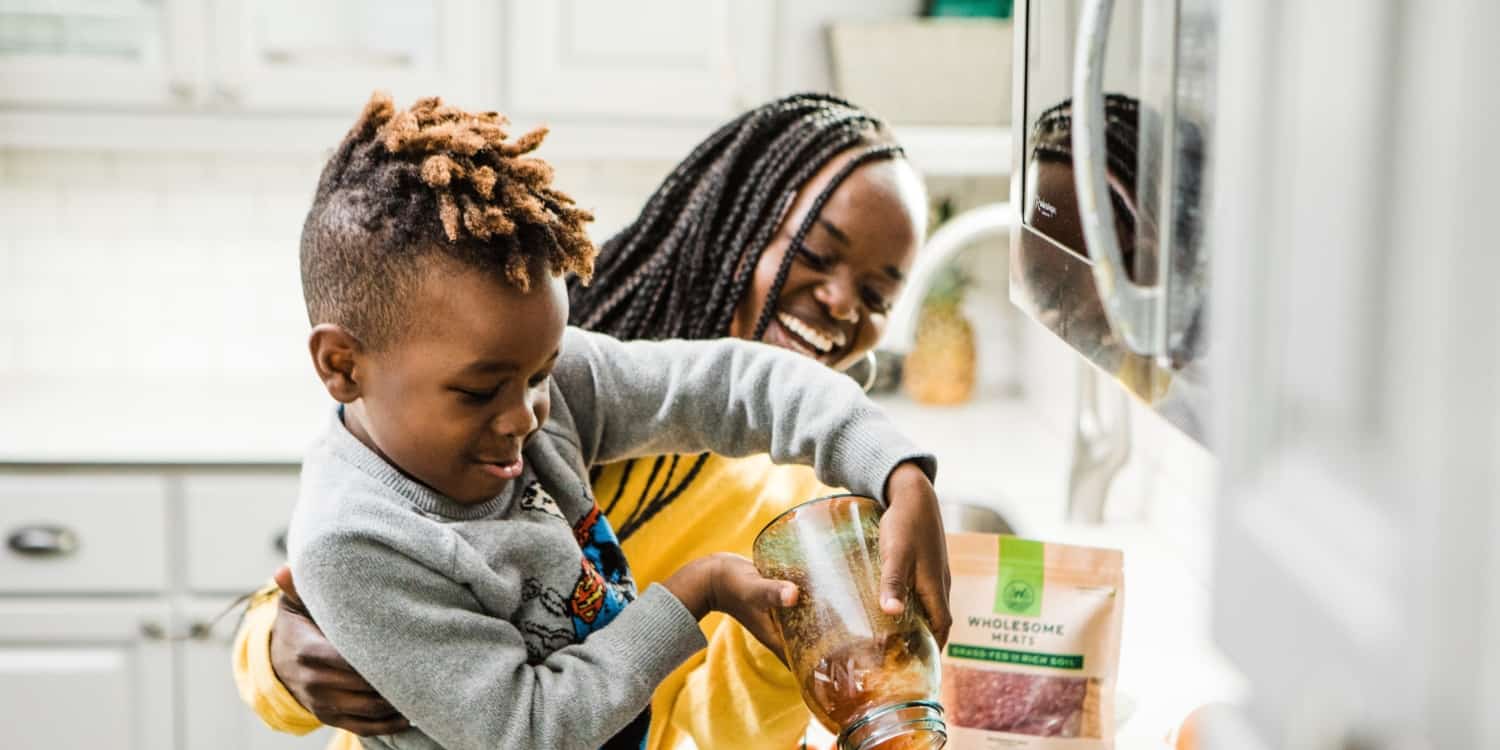The past few months have not been easy on presenter, DJ, and mother-of-two Ashley James. In October 2022 – while pregnant with her second child – James received a letter from social services stating a case had been opened on her concerning child neglect, following anonymous tip-offs. She believes she was reported by complete strangers: social media users.
Last week, James appeared on Channel 4’s Steph’s Packed Lunch to share her experience, which included having to provide authorities with information on everything from her son’s childcare to her future daughter’s birth plan. She also revealed the case was closed only after she hired a private detective to prove that the claims against her were malicious – and false.
“I’ve been in the public eye since 2012, so am no stranger to online trolling,” the influencer wrote in an Instagram post after the show. “I’ve learnt to largely ignore it and not go in search of it – I avoid comment sections of large online newspapers and especially those on anonymous gossip forums.
“However, I underestimated that these forums were becoming more than just harmless gossip sites; they are places where people could encourage others to harass celebrities. Spaces that have evolved from discussing people’s appearances, parenting skills, and behaviours into a place where people brag about reporting celebrities and influencers to the RSPCA, HMRC, the police, and in my case: social services.”
KEY TAKEAWAYS
- Creators are speaking out following a rise in people making allegations of child abuse or neglect to social services about celebrities, influencers and female politicians
- Alongside these serious reports are other accusations of parents exploiting their children for money or views, breaching their privacy or endangering their safety
- The phenomenon of social media users rising up against creators is due to a range of complexities and consequences of the “parasocial” relationship, says a psychotherapist
- Platforms need to do more to protect influencers from anonymous accounts, toxic forum discussions and targeted trolling
- There have also been calls for the Online Safety Bill to do more to protect women and girls
You may also like
Impossible for parenting creators to “win”?
The role of parenting creator has long been controversial. Influencers who are willing to share candid snapshots and updates of family life attract huge followings and lucrative partnership opportunities, with viewing figures for family vlogging up 90% in 2017 and growing to this day. But in doing so they can also open themselves up to unparalleled levels of criticism.
Show their children too much, and creators can be accused of exploiting their offspring for sponsorship purposes. Shield their faces for privacy, and parents are told they’re being overprotective. Show them less (or less than before) and the suggestion comes that they have been used simply to attract followers, that children are being left to their own devices or, worse still, neglected.
It seems impossible for parenting creators to “win”; they face criticism for how they parent, however they parent.
Family vloggers the Saccone Jolys (1.65M subscribers) have been uploading videos almost daily since 2014 but have been called out on parenting forums in recent years for “failing to protect” their young children, by being indiscriminate about what content they film and share, from their 10-year-old daughter singing Sam Smith to putting their transgender nine-year-old’s journey front and centre in their content, all while attracting millions of views.
And this goes beyond the influencer sphere. As James highlighted in her interview and post, Stella Creasy MP has also been investigated by social services following a report from an online harasser. Both women are now calling for more protection for women and girls as part of the Online Safety Bill, which is currently in the House of Lords.
So, why does parenting content prompt such strong responses? And why do some users go as far as to report a stranger to the authorities for their parenting, with little to no evidence or facts?
Judgement amplified by online effect
Psychotherapist and author Dr Aaron Balick, a specialist in how we relate to each other on social media, says it all stems from the complexities of the “parasocial” relationship.
“Whenever you go online, you’re dealing with other unknown individuals from whom you’re only getting a very small bit of information, a post and a profile picture,” he says. “You’re not seeing them as fully human and complex and allowing them to change their mind or tolerating them in the same way you would somebody close to you, so we’re more likely to demonise them more quickly.”
Add to this the “online disinhibition effect”, which makes us less socially inhibited online than we are in face-to-face conversations. In person, you can see someone’s reaction to criticism, says Dr Balick, whether upset, angry or defensive, and this makes us “regulate ourselves and each other”.
Dr Balick describes parenting as a particularly “vulnerable-making” area of content online, as is being a parent offline. People desperately want to get their own parenting right, he says, and can all too easily invest this anxious energy into an influencer who is seen as “getting it wrong”. If the creator is wrong, perhaps the viewer feels they are, too, for trusting them, leading them to lash out.
This anti-social behaviour is seen even more at scale. “If you’re appealing to hundreds of thousands of people, there are going to be people who are behaving antisocially, just for the fun of it,” he adds.
The scale and anonymity of online forums such as Mumsnet and Tattle Life can further amplify the culture of judgement. Much has been written about the 2019 case of parenting creator Clemmie Hooper (Mother of Daughters) who admitted to creating a Tattle Life pseudonym in an attempt to defend herself and her brand from criticism. Using that pseudonym, she also made “racially offensive” comments about fellow influencer Candice Brathwaite-Aboderin and even criticised her own husband, Simon Hooper (Father of Daughters, 851K followers).
In the fallout, Hooper deleted her Instagram account, which had almost 700,000 followers, and just two months ago the midwife was handed a one-year caution order following a misconduct hearing. Hooper’s health – which was said to be affected by “reading a very large volume of negative comments about herself online” – was taken into account in mitigation.
Risk vs reward of a high following
Criticism can sometimes focus on the smallest of details. Last month lifestyle vloggers Rose and Rosie felt compelled to respond in a video to criticism on an Instagram post of them using toddler reins on their one-year-old son Ziggy during a holiday in Spain.
As Rose explains in the video: “I had to put his baby reins on because he’s a runner and obviously in a country I’m not familiar with I have the paranoia that he’s going to be snatched. The amount of people on my Instagram who said ‘what breed is he’ and were so triggered by the fact that I had toddler reins on – what is it that you’re actually trying to accuse me of? Bad parenting?”
This is the first time she has responded to a negative comment. “I feel like sometimes now people on the internet look at a picture on Instagram and think ‘what can I find wrong with it?’” she says.
“It did ruin my morning because I can’t look at those photos now without feeling really awful because there was this awful discussion in the comments about the choices I had made and how detrimental they would be to my son. You’ve got to learn to shrug it off but it is difficult.”
It can be hard to rationalise but online criticism tends to reveal more about the critic than the target. As Dr Balick explains, the relationships we have with people we follow online, especially those we don’t actually know and even those we really admire, albeit from afar, are vulnerable to all sorts of psychological dynamics such as projection, idealisation and de-idealisation.
“You’re not in an actual relationship where you’re getting feedback from the other person that helps correct your ideas about them, [so] you fill in those details from your own mind,” says Dr Balick.
“For example, you might intensely idealise someone and think they’re right about everything because you’re not seeing the flaws or evaluating them critically. But then as soon as they step on the wrong side of that, for whatever reason, you can go right into de-idealisation.”
For creators, there are no easy solutions. The higher your follower count, the more likely you are to receive criticism.
Dr Balick believes the responsibility for reducing risk may actually sit somewhere else: with social media platforms and forums. “I don’t think any site that allows anonymous posters is a good idea,” he says. “You’re hedging your bets towards a really negative atmosphere, when it is possible to create social networks that have a culture of kindness and respect, with close moderation and community guidelines – that kind of stuff certainly helps.”
For Ashley James, the social services case has been closed and she is free to move on. However, it will take longer for the memories to fade and for meaningful change to be achieved.
“I know I’m a good mum. I never doubted that social services would find anything other than a very loved child and now two children. There is a trail to prove that it was all fabricated and it was just malicious,” she says.
“But it was a really stressful time. It’s very different people saying they don’t like the way you dress to such serious events like false police claims and social services allegations.”
By Lauren Harris, CORQ editor. Picture credit: Ashley James via Instagram










Influencer trolling is a growing problem and the Online Safety Bill won’t be enough to stop it